Associate Professor Dr. Ana Luleva is head of the "Ethnology of socialism and post-socialism" section at the Institute of Ethnology and Folklore Studies with Ethnographic Museum at the Bulgarian Academy of  Sciences (BAS). She graduated from the Faculty of History, Sofia University "St. Kliment Ohridski" and specialized in History and Theory of Culture. After defending her PhD in the field of Bulgarian traditional material culture, she worked as a research associate at the Ethnographic Institute with Museum at BAS. She specialized in Munich and Jena, was a lecturer at South West University "Neofit Rilski" and guest lecturer at universities in Munich, Regensburg, Tartu and Istanbul. She is talking with Polina Spartyanova.
Sciences (BAS). She graduated from the Faculty of History, Sofia University "St. Kliment Ohridski" and specialized in History and Theory of Culture. After defending her PhD in the field of Bulgarian traditional material culture, she worked as a research associate at the Ethnographic Institute with Museum at BAS. She specialized in Munich and Jena, was a lecturer at South West University "Neofit Rilski" and guest lecturer at universities in Munich, Regensburg, Tartu and Istanbul. She is talking with Polina Spartyanova.
How would you describe the everyday culture of Bulgarians nowadays?
This is a very complex question. Assuming that "everyday culture" means a set of values, normative orientations and socially constructed meanings and patterns of behaviour that people, members of a social group, perceive as typical of their community and embody in their daily routines, it would be very difficult to talk about the everyday culture of Bulgarians in the singular. I think insteadwe are seeing today a complex constellation of everyday culture in a complex, open society with coexistent practices and worldviews of different nature, namely pre-modern, modern and post-modern. The culture of modern people combines, in a new, previously unfamiliar way, superstition and belief in magic and the evil eye, for example, with education and knowledge about the world.
 In your opinion, how has the everyday culture of socialism and post-socialism influenced the development of Bulgarian society?
In your opinion, how has the everyday culture of socialism and post-socialism influenced the development of Bulgarian society?
Undoubtedly, culture matters and affects the state of a social group or society as a whole. The work of ethnologists, cultural and social anthropologists is precisely to explore this relationship. The end of the communist regime did not put an end to the everyday culture established in its terms. A number of ideas and practices had proved to be viable and sustainable in the post-socialist period, thus affecting the process of post-socialist transformation.
Are there aspects of traditional Bulgarian culture which have recently become extinct and what are they?
Ethnologists use the term “Bulgarian traditional culture” to describe the pre-industrial culture of Bulgarian society. It is assumed that it was preserved in the Bulgarian village until the early twentieth century. The significant social changes after September 1944 led to the destruction of the former way of life and everyday culture. Bulgarian society was modernized, urbanized and the rural culture in the years of socialism was perceived as a remnant that should be overcome. Ethnographic expeditions in the second half of the twentieth century described the relics of the old traditional culture, thus reconstructing the picture of the traditional family and calendar holidays, traditional means of living, clothing, architecture, food, home arrangement, household goods. Nowadays, they are all part of the Bulgarian cultural heritage and are perceived as Bulgarian national traits.
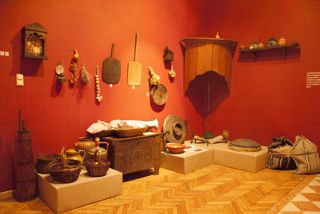 What are the specific characteristics of traditional and modern Bulgarian culture within the Slavic community and the Balkan Peninsula?
What are the specific characteristics of traditional and modern Bulgarian culture within the Slavic community and the Balkan Peninsula?
To determine the specific characteristics of a culture, it must be explored in comparison with other cultures, with close cultures that are within its cultural circle. For Bulgarian culture, those are the Balkans, Southeast Europe and Slavic cultures. The similarities and differences of Bulgarian culture with other Slavic cultures, with the culture of our neighbours, namely Romanians, Serbs, Greeks, Turks, are evident in specific pieces of research. There are numerous studies by Bulgarian and foreign scientists who made similar comparisons of material culture, funeral customs, calendar holidays, languages. On the other hand, it is important for ethnologists to understand which elements the bearers of the culture perceive as their "own" and which ones as "foreign", how they imagine their culture and that of others.
 Is there Greek heritage in the customs of Bulgarians and Bulgarian heritage in the lives of Greeks, and if so, what is it?
Is there Greek heritage in the customs of Bulgarians and Bulgarian heritage in the lives of Greeks, and if so, what is it?
I would not dare to determine what is "Greek" in Bulgarian culture and vice versa, namely what is "Bulgarian" in Greek culture. During centuries of coexistence in the Balkans the two neighbouring cultures had influenced each other and I think that it is more interesting to learn how they looked at each other, how they evaluated each other within the different historical and political contexts. As I have said, ethnologists find it more relevant to study how the bearers of specific culture define certain elements of it as "their own" and others as "foreign". In this respect, the comparison between Bulgaria and Greece stands out in the family and community memory in the Bulgarian Black Sea cities. As is known, Sozopol, Nesebar, Pomorie (formerly Anchialo) were founded as ancient Greek colonies. A compact but sparse Greek population inhabited them which, over 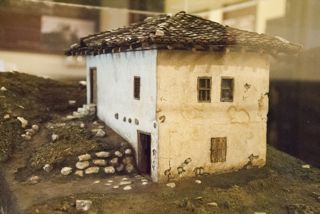 time, had declined due to the pressure from the Bulgarian state. During the field work in these cities in 2004, 2005 and 2006, my colleagues from the Ethnographic Institute with Museum and I met with some of the descendants of the local Greeks. Both communities (the descendants of the local Greeks and the descendants of the Bulgarian refugees who settled in these cities after World War I) pointed out the marriage pattern of Bulgarians and Greeks as a significant cultural difference. In the Bulgarian pattern, the woman would go to her husband’s house, thus becoming a daughter-in-law whereas it was the opposite in Greece, as the man would go to his wife’s house, thus becoming a son-in-law. The other differences involve the distribution of labour in the family, the means of living, the urban appearance of the clothing and the arrangement in the Greek houses as opposed to the peasant dresses and the poverty in the Sharon houses of the Bulgarian farmers. These differences impressed the two communities when they met in the 1920s and today’s inhabitants of these cities have preserved them as memories.
time, had declined due to the pressure from the Bulgarian state. During the field work in these cities in 2004, 2005 and 2006, my colleagues from the Ethnographic Institute with Museum and I met with some of the descendants of the local Greeks. Both communities (the descendants of the local Greeks and the descendants of the Bulgarian refugees who settled in these cities after World War I) pointed out the marriage pattern of Bulgarians and Greeks as a significant cultural difference. In the Bulgarian pattern, the woman would go to her husband’s house, thus becoming a daughter-in-law whereas it was the opposite in Greece, as the man would go to his wife’s house, thus becoming a son-in-law. The other differences involve the distribution of labour in the family, the means of living, the urban appearance of the clothing and the arrangement in the Greek houses as opposed to the peasant dresses and the poverty in the Sharon houses of the Bulgarian farmers. These differences impressed the two communities when they met in the 1920s and today’s inhabitants of these cities have preserved them as memories.
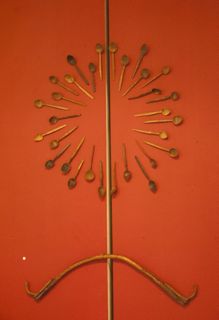 Do you think that the contemporary social and political processes in Bulgaria and Greece have something in common?
Do you think that the contemporary social and political processes in Bulgaria and Greece have something in common?
Although Greece does not have the Bulgarian experience in terms of state socialism in the Soviet model after World War I, it seems that the two neighbouring countries are increasingly converging in response to the global economic crisis, globalization, EU membership. Perhaps the reason for this may be sought in the similarities in the cultural norms and values of Bulgarian and Greek society. An unstable political system, high unemployment, distrust on the part of the citizens in the political and economic elites that are associated with scandalous revelations about corruption, growing xenophobia and fascist nationalist parties, a public sphere pierced with informal relationships and dependencies - it seems to me that these are very significant common features of the social and political life in both countries.
You are currently involved in a culture and heritage project in the region of the southern Bulgarian border, during which you carried out field research in northern Greece. What is the nature of the project and what are the conclusions/findings you have made up[ to now?
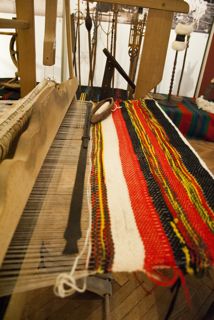 Yes, currently an interdisciplinary team of scientists and graduate students from several institutes and universities is working on the project "Culture, memory, heritage in the region of the southern Bulgarian border", financed by the Fund for Scientific Research. The first stage of the project was completed. It involved field research in the regions of Gotse Delchev, Smolyan, Elhovo, Ivaylovgrad, Kardzhali and the regions of Alexandroupolis, Xanthi, Serres and Drama in Northern Greece, which are an area of ancient cultures, cross-cultural contacts and influences, but also an area where a traumatic memory of wars, violence and negative stereotypes had formed in the era of nation-states. Today, there are no wire fences along the border, there is free movement of people, goods and ideas that break the stereotypes, turning the region into a contact zone. Within the context of the European policies for regional development, the common cultural heritage, which is combined with specific local cultural practices and traditions, is being reinvented here. Our aim was to document and describe these changes, to find out how the people were experiencing them in the daily routine and if "border" communities and identities were being formed as well as the place of the cultural heritage and cultural memory in the construction of the local and national identity in this region. We are about to analyze the collected material, to publish a collection of studies and present the results at a scientific conference which our Greek colleagues have expressed their willingness to attend.
Yes, currently an interdisciplinary team of scientists and graduate students from several institutes and universities is working on the project "Culture, memory, heritage in the region of the southern Bulgarian border", financed by the Fund for Scientific Research. The first stage of the project was completed. It involved field research in the regions of Gotse Delchev, Smolyan, Elhovo, Ivaylovgrad, Kardzhali and the regions of Alexandroupolis, Xanthi, Serres and Drama in Northern Greece, which are an area of ancient cultures, cross-cultural contacts and influences, but also an area where a traumatic memory of wars, violence and negative stereotypes had formed in the era of nation-states. Today, there are no wire fences along the border, there is free movement of people, goods and ideas that break the stereotypes, turning the region into a contact zone. Within the context of the European policies for regional development, the common cultural heritage, which is combined with specific local cultural practices and traditions, is being reinvented here. Our aim was to document and describe these changes, to find out how the people were experiencing them in the daily routine and if "border" communities and identities were being formed as well as the place of the cultural heritage and cultural memory in the construction of the local and national identity in this region. We are about to analyze the collected material, to publish a collection of studies and present the results at a scientific conference which our Greek colleagues have expressed their willingness to attend.
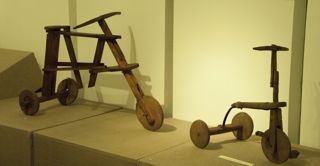 What can visitors to the Ethnographic Museum at BAS see now?
What can visitors to the Ethnographic Museum at BAS see now?
Currently the halls of the Ethnographic Museum are presenting two exhibitions: "Bulgaria for Japan" (until 7 February) and "Once Upon a Time at Home" (until November). The exhibition "Once Upon a Time at Home" brings us closer to the spirit of the traditional Bulgarian house, the traditional rural house during the pre-modern times. Its focus is the activities that were carried out at home and that actually created it, from the construction of the house, the arrangement of the objects made by the owners, to the toys, fabrics and embroideries. The exhibition is very informative and very attractive at the same time. It is the work of a young team and it is my pleasure to invite your readers to visit it.